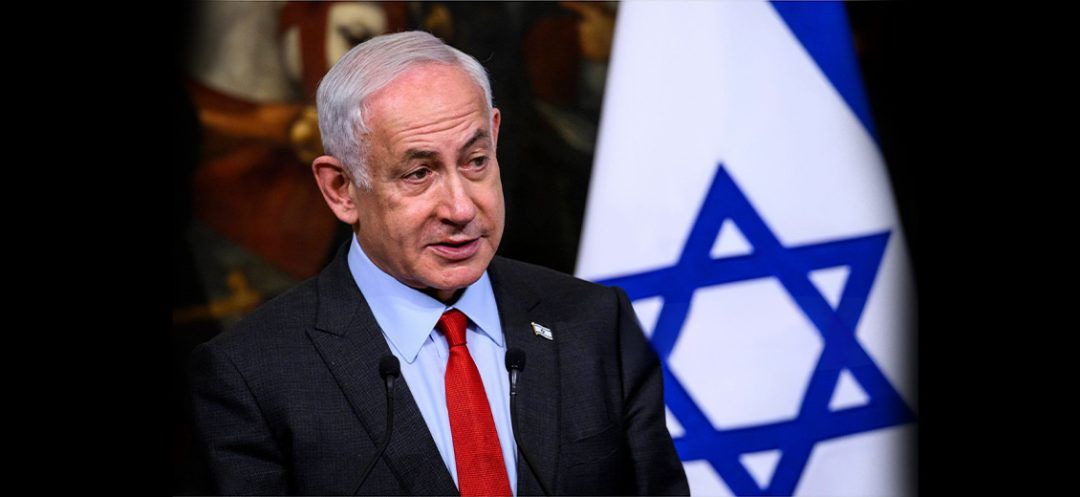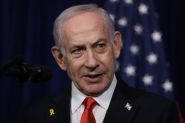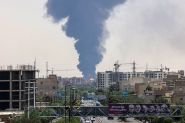- Home
- Middle East
- Has the War in Lebanon Rescued Netanyahu?

Nearly a year after the onset of the Gaza war and the opening of the Lebanese front, Israeli Prime Minister Benjamin Netanyahu is enjoying his highest approval rating since taking office. A year later, it is evident that this conflict shows no signs of resolution. In recent months, tensions between Israel and Hezbollah in Lebanon have intensified, culminating in an Israeli airstrike that dropped nearly ten tons of bombs on Beirut’s southern suburb in an attempt to eliminate Hezbollah's Secretary-General, Hassan Nasrallah. Most notably, Netanyahu has experienced a remarkable resurgence in the polls. Following a period of significant unpopularity due to the security failures of October 7, his Likud party has regained the lead in voter intentions, benefiting from an increasingly radicalized public opinion towards Hamas and Hezbollah.
How did Netanyahu manage to turn this situation around? How has he leveraged the radicalization of the electorate to weaken a more moderate opposition and use his aggressive military policies as a tool for gaining popularity?
Since the beginning of the year, the Likud party has begun a gradual recovery of its standing within the Israeli political landscape, a phenomenon that significantly intensified at the end of July. Notably, within a span of less than 24 hours on July 30 and 31, Israel conducted major targeted strikes, eliminating Hezbollah's top military official in Beirut's southern suburb, Fouad Shokr, along with Hamas leader Ismail Haniyeh in Tehran. In recent weeks, Israeli military actions have escalated, inflicting severe setbacks on Hezbollah, including airstrikes that targeted and killed several commanders of the elite Radwan unit, devastating bombings in southern Lebanon and the Beqaa Valley, and the assassination of Hezbollah Secretary-General Hassan Nasrallah.
This surge in violence, while generating considerable alarm among the international community—particularly from the United Nations, which has called for de-escalation, and from Israel's allies warning of the dangers of a large-scale conflict—has, paradoxically, had the opposite effect on Israeli public opinion. After enduring unprecedented unpopularity in the months following Hamas' October 7 attack—deemed the worst security failure in Israel's history—Likud has experienced a remarkable resurgence in voter support. Polls that once predicted a meager 16 seats for the party have been revised to suggest it could now secure between 23 and 25 seats in the Knesset, representing approximately 23.4% of voter intentions. Consequently, Likud has positioned itself ahead of its main rival, the National Unity party led by Benny Gantz, currently credited with 21.1%. Meanwhile, the governmental coalition, although still a minority, is narrowing the gap with the opposition: recent polls indicate it could capture 53 seats compared to 61 for the opposition, reflecting a significant rebalancing after months of decline.
What led to Netanyahu's unpopularity? While the security failures stemming from Hamas' incursion into Israel undeniably caused a sharp drop in Benjamin Netanyahu's approval ratings, it was his highly controversial judicial reform that marked the beginning of his decline in the polls. In January 2023, the Prime Minister unveiled a reform plan that sought to grant him judicial immunity, triggering widespread outrage in Israeli society. This project sparked fierce criticism and triggered massive protests nationwide, delivering a severe blow to the government’s credibility.
However, after months of indecision and political maneuvering, this reform was pushed to the background, overshadowed by the security crisis that erupted on October 7, 2023. Notably, a detailed investigation revealed that Hamas had started planning this attack 7 to 8 years prior, indicating that Israeli intelligence should have detected warning signs as early as 2016. Yet, the intelligence division of the Israeli Defense Forces failed to recognize these early indicators, while the Mossad mistakenly believed that Hamas had been deterred by Israel's military might. At that time, Israeli intelligence assessed that Hamas, currently led by Yahya Sinwar, was focused on improving the economic situation for Gaza residents and consolidating its sovereign status, lacking both the will and capability to wage war against Israel.
The management of the conflict during its initial months faced intense criticism and was perceived as extremely unpopular among the Israeli public. Multiple strategic errors—stemming from the unpreparedness of the armed forces, military command, intelligence services and the executive branch, all caught off guard by Hamas' surprise attack—were condemned. However, these same shortcomings may have inadvertently benefited Tel Aviv in its confrontation with Lebanese Hezbollah.
In fact, the opening of a northern front, which remained at a relatively low intensity for several months, likely allowed Israel to better prepare for a large-scale offensive against Hezbollah. It seems probable that the political decision to initiate such an operation was made months in advance, enabling Israeli intelligence to conduct meticulous preparations. These efforts resulted in nearly daily targeted strikes that eliminated key figures within Hezbollah, culminating in extensive operations aimed at disrupting their communication networks through booby-trapped pagers. This strategy recently reached its zenith with the assassination of Hassan Nasrallah.
Today, Benjamin Netanyahu appears resolute to get rid of Hezbollah in Lebanon, following his actions against Hamas in Gaza. This policy seems to enjoy broad support among the Israeli public. In fact, the confrontation with Hezbollah and other adversaries linked to the Iranian-backed “axis of resistance” has fostered a significant surge of national solidarity. Public sentiment appears increasingly unified in response to the threat posed by Hezbollah and the risk of regional escalation. Nasrallah's assassination has likely resonated positively with the Israeli populace, given his prominent status within the pro-Iranian “resistance” or obstructionist axis.
The military campaign in Lebanon appears to be meticulously calculated and orchestrated. Beyond the systematic targeting of Hezbollah leaders, the operation follows a progressive strategy: beginning with attacks on pagers, escalating to intensive bombings in southern Lebanon that have caused hundreds of victims, then moving to strikes in the Beqaa Valley, the assassination of Hassan Nasrallah and the ongoing bombardments of the Beirut southern suburb. According to multiple credible reports from international media, including CNN and ABC News, the next phase may involve a ground incursion of approximately fifteen kilometers into southern Lebanon.
Netanyahu seems to be leveraging the conflict with Hezbollah to bolster his position in the domestic political arena, a strategy that appears to be paying off for now. This shift in dynamics has worked to Netanyahu's advantage, especially as Israel has yet to achieve its war objectives in Gaza, namely the destruction of Hamas and the release of around 100 Israeli hostages still held in the enclave. However, despite the Likud party's resurgence, many observers caution that the situation could dramatically change by the next elections, scheduled for no later than October 2026. Political figures such as former Prime Minister Naftali Bennett, currently absent from the political landscape, could make a comeback and potentially alter the electoral balance.
It is certain that developments on both fronts—Gaza and Lebanon—will be crucial for Netanyahu's fate. Moreover, his political future hinges on the opposition's ability to forge a coalition capable of toppling him. In the scenario of a parliament lacking majority, he would remain in office as the incumbent, thereby sustaining his hold on power.
Read more




Comments